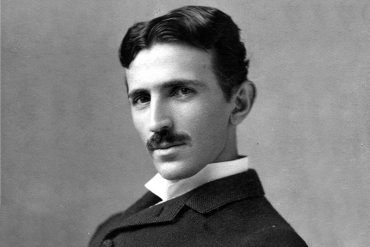Elena Gaura & James Peter Brusey
Elena received her PhD in Intelligent Sensor Systems in 2000 (Coventry University); she was awarded a Professorship in Pervasive Computing, at the same university in 2009. Over the course of her career, Elena has accrued a sturdy academic reputation in the area of Cyber Physical Systems - specifically MEMS based smart sensing systems, wireless sensor networks (WSNs) and the Internet of Things (IoT). She routinely engages with national and international advisory and grant awarding bodies in the areas of sensing and distributed energy solutions. She chaired (2007–2013) the UK Wireless Intelligent Sensing Interest Group (WiSIG) within the Electronics, Sensors, Photonics Knowledge Transfer Network and is an expert reviewer and assessor for the European Commission (EC), Leverhulme trust, UK Research Councils, Finland Academy of Science and other international funders. She is a full member of the UK’s Engineering and Physical Sciences Research Council College of Peers (www.epsrc.gov.uk) and the UKRI Future Leaders Fellowships Peer Review College and serves on the British Council Newton Fund Panels. She is an EPSRC affiliated member of the Women’s Engineering Society. She is actively involved with the European Commission and regional government organizations to promote the knowledge transfer from academia to industry and society at large, particularly focusing on the use of sensing technologies for reducing poverty, increasing health, enabling social mobility, and towards the adoption of wireless technologies, Artificial Intelligence and the Internet to tackle global energy challenges.Her work is sponsored by the EPSRC, Innovate UK, Royal Society, European Programmes, British Council, Singapore- MIT Alliance and benefitted from direct sponsorship from industry (Jaguar Land Rover, Orbit Housing Association, NP Aerospace, Meggitt Ltd, etc). Presently her research is on robust end-to-end multi-sensor cyber-physical systems design and community focused technologies integration processes. She applies and validates most of her innovations in complex socio-technical energy systems. Elena brings together multi-disciplinary international teams, across the cyber-physical, energy engineering and social sciences academic and practice domains. She is very active in the Energy arena, through Humanitarian Engineering projects worldwide, in grid and off grid settings, working towards viable and sustainable end-to-end designs for energy eco-systems. She is currently leading the EPSRC HEED GCRF (EP/P029531/1), and is the Cyber-Physical Infrastructure theme lead for UK’s PFER programme, Energy Revolution (EP/S031863/1). She works with communities in the UK, Amazon, Philippines, Nepal and Rwanda on energy-for-all solutions enabled by sensing and the Internet. Elena has graduated 20 PhD students to date.
James Brusey is a Professor of Computer Science with the Centre for Data Science at Coventry University, leading on AI for the Internet of Things. His current research is in Machine Learning, Reinforcement Learning, and applied wireless networked sensing. Recent industrially-focused projects involve vehicle thermal comfort (with JLR), residential building and thermal comfort (Orbit Group), particle filter algorithms for flow measurement (with TUV-NEL), a new form of linear discriminant analysis (TUV-NEL), algorithms for network packet reduction (EU-funded STARGATE project with Rolls-Royce), decision support for buildings monitoring, elderly / infirm falls and near-falls sensing.
He provides thought leadership to the virtualisation framework for the EU H2020 DOMUS project (involving Fiat (CRF), Toyota (TME), and Volvo among others) that aims to revolutionise thermal comfort systems for electric vehicles.
James Brusey received his PhD from RMIT University in 2003. He has over 15 year's experience in the IT industry, part of which was as an independent consultant. He has taught research methods to all levels of researchers around the world and teaches practical courses in wireless sensing and Internet of Things to postgraduate students. He is well published and cited, has graduated 20 PhD students, and received 25 grants with a total value of £35mil. His professorship was awarded in 2018.

